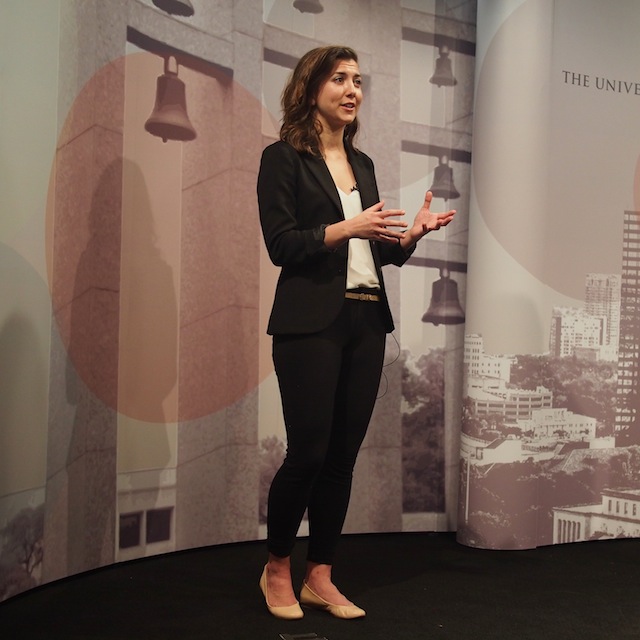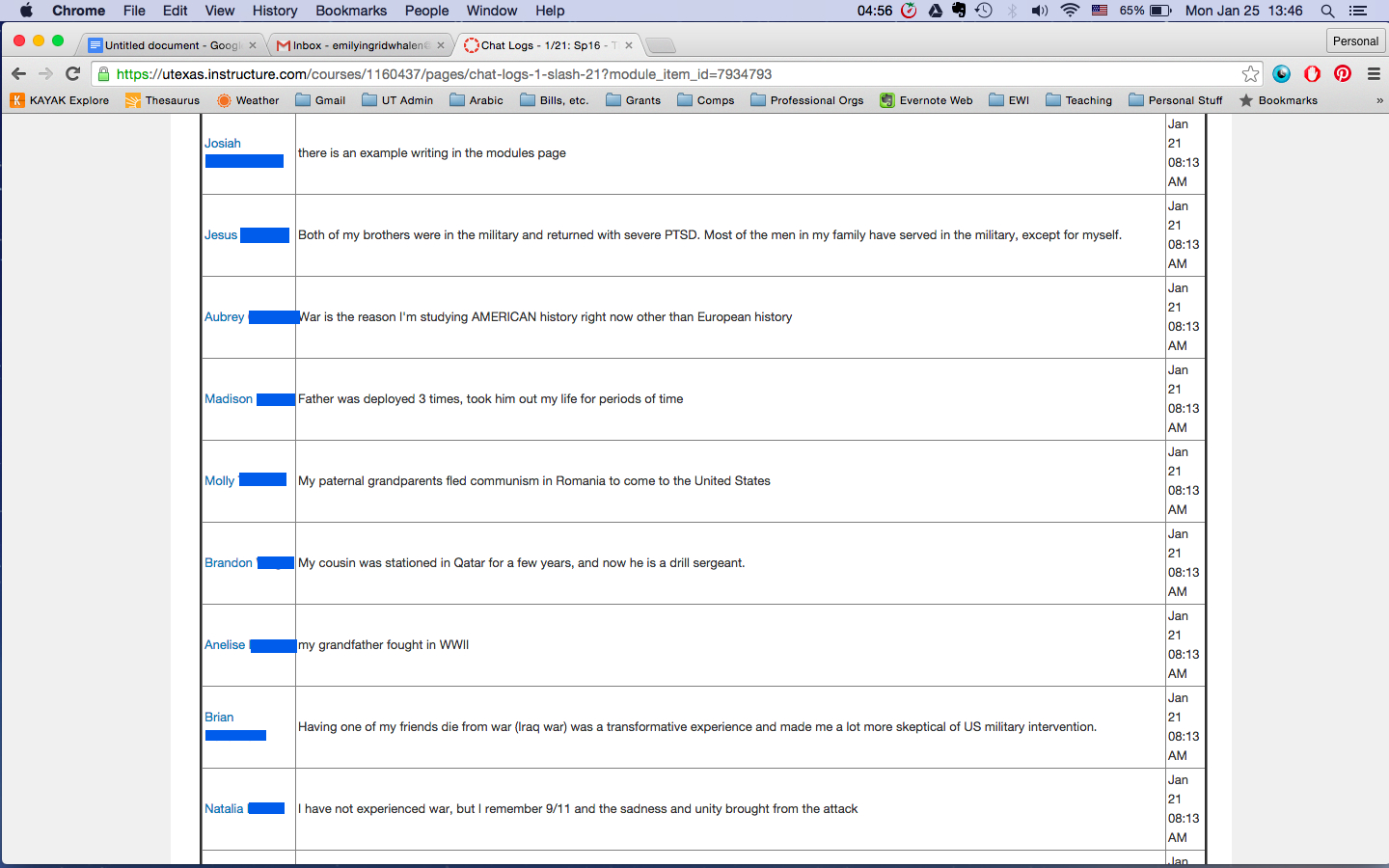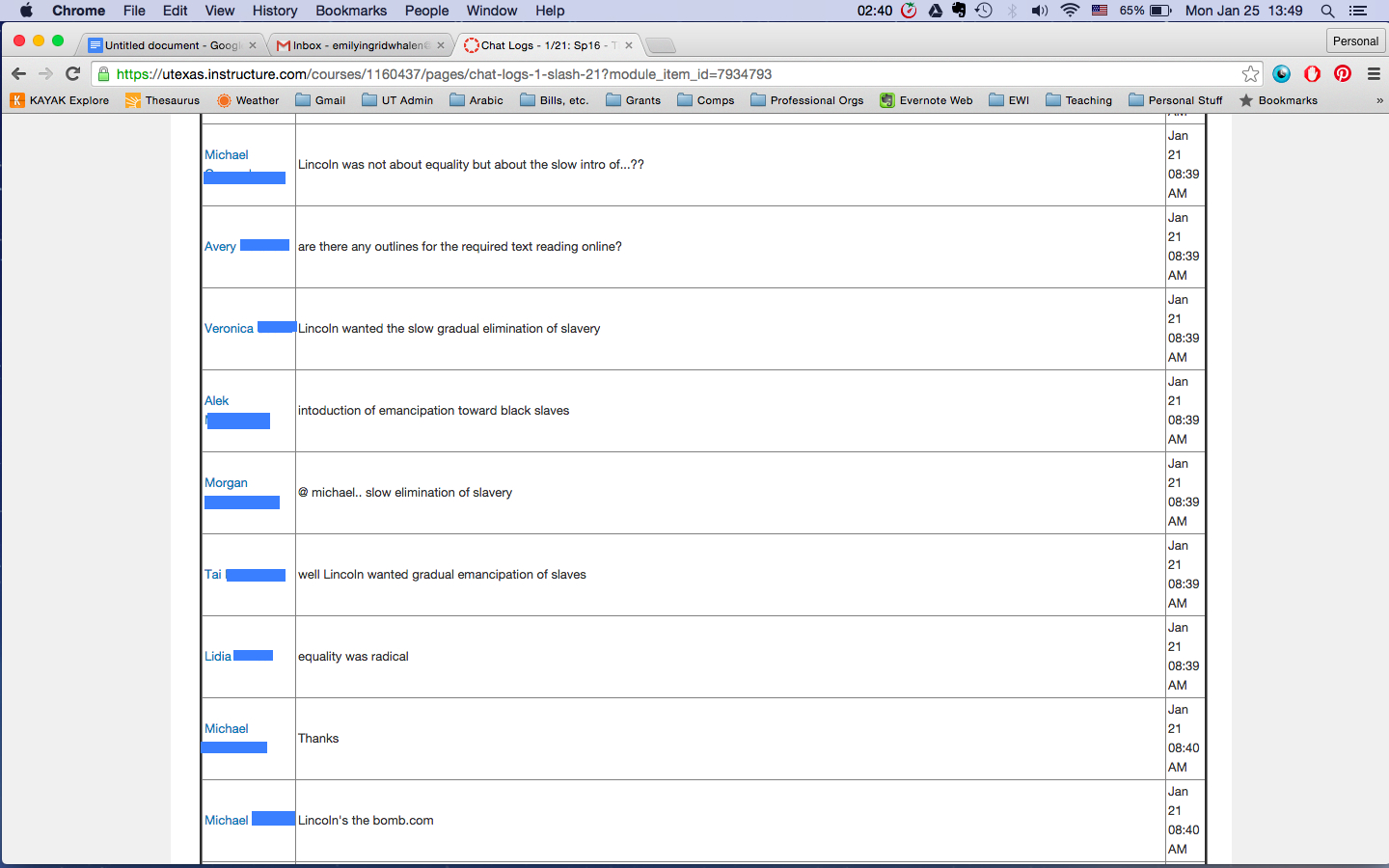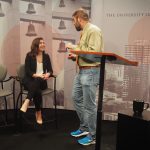Every year thousands of students take introductory courses in U.S. History at UT Austin. This spring Prof Jeremi Suri is experimenting with an online version of the U.S. History since 1865 survey course. He and his teaching assistants, Cali Slair, Carl Forsberg, Shery Chanis, and Emily Whalen will blog about the experience of digital teaching for readers of Not Even Past.
By Emily Whalen
Some scholars wince a little when they hear the words “online class.” But what if online education wasn’t meant to supersede traditional teaching methods? What if online tools enhance the student experience? Instead of increasing the quantity of enrolled students, what if we increased the quality of the course through the use of online learning?

Emily Whalen talking during the filming of the first online lecture on January 21, 2016. Courtesy of the Joan Neuberger.
The first week in our new, online US History survey course was a whirlwind, but the teaching team and the studio team have both entered with open minds. We all feel a little bit like we’re a part of a thrilling new experiment and that air of excitement and flexibility has carried over into our interactions with the students. The first few classes were not without slight hiccups—technical difficulties for one or two students as they learn the new engagement tools—but for the most part, we’ve had positive results.
The biggest feature for many students to adjust to, and for the teaching team to navigate, is the Class Chat. During lecture, students have a chat room open in another window, where they can talk to their classmates, ask TAs questions, and respond to prompts that Prof. Suri asks them throughout the lecture. Few students in lecture halls tapping away at laptop keyboards are only taking diligent lecture notes – many are answering emails, checking social networks, and messaging each other, much to the lecturer’s chagrin. With Class Chat, we are trying to ensure that multitasking students engage in multiple tasks without diverting their attention away from the course. In the last class, Prof. Suri asked students to share ways in which war had affected their lives, at the start of a section about how the Civil War shaped the social and cultural landscape of the American South. Students chimed in with their responses and the TA moderating the chat was able to share some of their answers on screen – something the students really enjoy! It was also eye-opening for us to see the amazing diversity of our UT student body unfold in real time. For the students to get a sense of the rich variety of their peers’ backgrounds was an additional benefit –and one that’s not easily achievable in a lecture hall.
Even better, Class Chat seems to be cultivating a congenial, supportive atmosphere among the students. We see students answering each others’ questions, reinforcing their own learning, and creating a unique collaborative environment during lectures. Students can immediately ask their peers if they’ve missed an important point in lecture or where to find next weeks’ readings. This way, students can improve their note-taking and immediately reinforce the salient points in Prof. Suri’s lecture. Last class we had a student create a Facebook group for the course to facilitate group study throughout the semester.
Of course, some questions are worth stopping the lecture for – and we’ve had students pose some really insightful questions already in our first two lectures. This is where the “Ask the Professor” feature comes in handy. In our first class, Prof. Suri discussed the effect slavery had on the Southern economy in the early years of the American Republic. Using the “Ask the Professor” button, one student asked Prof. Suri to clarify what he meant by the difference between working for a wage and working for survival. As Prof. Suri responded to the question, he realized that the distinction between the two wasn’t as clear-cut as his lecture had suggested. The student was able to see Prof. Suri reassess and refine his phrasing to better reflect that ambiguity. It was a wonderful illustration of the ways these interactive tools create dialogue and benefit scholars as well as students.
One goal of this course was to harness the multitasking abilities of our students and demonstrate a participatory approach to knowledge to make the class both more interesting and more educational for them. Just a week in, we’re realizing that it’s a tremendous educational experience for the teaching team, too!





